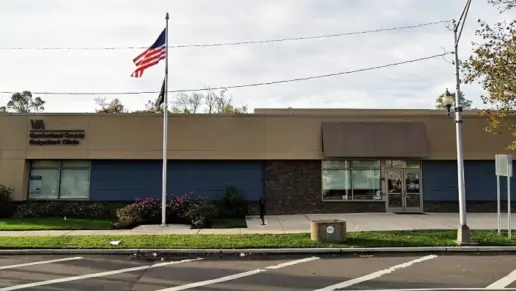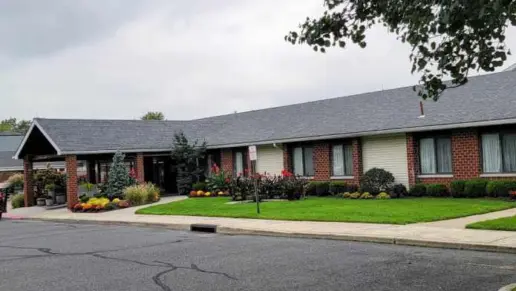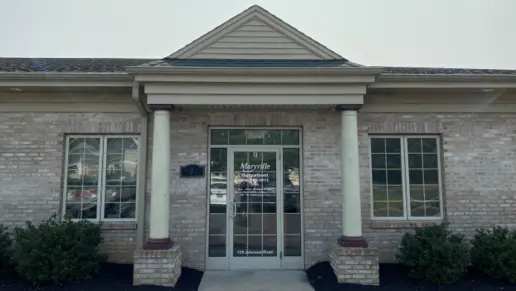A compassionate organization that works together for the greater good. Most mental health issues are not discussed in society, because of stigma. Here, it is so easily treated that you do not feel any pressure about it.
About AtlantiCare – Adult Outpatient
AtlantiCare Behavioral Health is the largest mental health and substance use treatment provider in southeastern New Jersey. They also offer family care and social support services. Their adult outpatient program in Hammonton supports adults with psychiatric, psychological and substance use issues. They’re well equipped to address co-occurring disorders as well. This is when some simultaneously struggle with both substance use and mental health issues.
A particularly unique service available in this location is compulsive gambling treatment. Drug or alcohol addiction affects the brain’s reward system. This makes it crave more excitement and risky behavior. Gambling can feel like a natural next step for anyone looking for another way to get a thrill. The cycle of substance misuse and gambling can over time feed off each other. This makes recovery from either behavior challenging.
One thing I like about this facility is their telehealth support. You can talk to your care provider via Video or Phone. They use the latest video technology to ensure seamless face-to-face care and consultation. This saves you time, money and is super convenient. It’s also noteworthy that you can find your treatment through Medicaid and Medicare. This makes their services affordable.
Folks who are uninsured can take advantage of their sliding fee scale options. This lets you pay for services based on your income. Many private insurance plans are acceptable as well. The facility is also super easy to access. The White Horse Pike (Route 30) stretches from Camden to Atlantic City. It provides east to west connection across South Jersey. So it’s pretty easy to reach by car or public transportation.
Hammonton itself is known as the “Blueberry Capital of the World.” It is surrounded by farms and green spaces. This can provide a calming environment for outpatient care. The facility prioritizes quality and personalized care that provides the best recovery outcomes. They take a team approach to recovery that emphasizes family involvement at all stages.
Their substance use services include early intervention, relapse prevention and intensive outpatient programs (IOP). Early intervention focuses on identifying unhealthy patterns of substance use and tackling it before it develop into addiction. It can involve screening tools and education about the dangers of substance misuse. The goal is to minimize harm and provide support at a stage where recovery is more manageable.
Their IOP involves groups and individuals focused on building healthier coping skills that support a sober lifestyle and prevent relapse. This level of care is suitable if you need a considerable level of support to overcome substance use in an outpatient setting. Your personalized care plan will include psychiatric evaluation and medication management alongside counseling. That’s if you’re dealing with co-occurring conditions.
Additional outpatient services are specialized psychological evaluations and employment assistance programs.
Rehab Score
Gallery

Location
Other Forms of Payment
Self-pay involves paying for treatment out of your own pocket. You can use savings or credit, get a personal loan, or receive help from family and friends to fund your treatment. If you don't have insurance or your insurance plan doesn't cover a specific program, self-pay can help ensure you still get the care you need.
Private insurance refers to any kind of healthcare coverage that isn't from the state or federal government. This includes individual and family plans offered by an employer or purchased from the Insurance Marketplace. Every plan will have different requirements and out of pocket costs so be sure to get the full details before you start treatment.
Medicaid is a state based program that helps lower-income individuals and families pay for healthcare. Medicaid covers addiction treatment so those enrolled can use their coverage to pay for rehab. When a program accepts Medicaid the client often pays very little or nothing out of their own pocket.
Medicare is a federal program that provides health insurance for those 65 and older. It also serves people under 65 with chronic and disabling health challenges. To use Medicare for addiction treatment you need to find a program that accepts Medicare and is in network with your plan. Out of pocket costs and preauthorization requirements vary, so always check with your provider.
Sliding scale payments are based on a client's income and family size. The goal is to make treatment affordable to everyone. By taking these factors into account, addiction recovery care providers help ensure that your treatment does not become a financial burden to you or your family, eliminating one barrier to care.
Addiction Treatments
Levels of Care
Treatments
The goal of treatment for alcoholism is abstinence. Those with poor social support, poor motivation, or psychiatric disorders tend to relapse within a few years of treatment. For these people, success is measured by longer periods of abstinence, reduced use of alcohol, better health, and improved social functioning. Recovery and Maintenance are usually based on 12 step programs and AA meetings.
Drug rehab in New Jersey is the process of addressing the complex issues involved with addiction. Challenges are identified and addressed through individual and group counseling. Participants learn how to manage these issues without the use of substances.
Many of those suffering from addiction also suffer from mental or emotional illnesses like schizophrenia, bipolar disorder, depression, or anxiety disorders. Rehab and other substance abuse facilities treating those with a dual diagnosis or co-occurring disorder administer psychiatric treatment to address the person's mental health issue in addition to drug and alcohol rehabilitation.
A combined mental health and substance abuse rehab has the staff and resources available to handle individuals with both mental health and substance abuse issues. It can be challenging to determine where a specific symptom stems from (a mental health issue or an issue related to substance abuse), so mental health and substance abuse professionals are helpful in detangling symptoms and keeping treatment on track.
Opioid rehabs specialize in supporting those recovering from opioid addiction. They treat those suffering from addiction to illegal opioids like heroin, as well as prescription drugs like oxycodone. These centers typically combine both physical as well as mental and emotional support to help stop addiction. Physical support often includes medical detox and subsequent medical support (including medication), and mental support includes in-depth therapy to address the underlying causes of addiction.
Programs


Clinical Services
Research clearly demonstrates that recovery is far more successful and sustainable when loved ones like family members participate in rehab and substance abuse treatment. Genetic factors may be at play when it comes to drug and alcohol addiction, as well as mental health issues. Family dynamics often play a critical role in addiction triggers, and if properly educated, family members can be a strong source of support when it comes to rehabilitation.
Group therapy is any therapeutic work that happens in a group (not one-on-one). There are a number of different group therapy modalities, including support groups, experiential therapy, psycho-education, and more. Group therapy involves treatment as well as processing interaction between group members.
In individual therapy, a patient meets one-on-one with a trained psychologist or counselor. Therapy is a pivotal part of effective substance abuse treatment, as it often covers root causes of addiction, including challenges faced by the patient in their social, family, and work/school life.
Trauma therapy addresses traumatic incidents from a client's past that are likely affecting their present-day experience. Trauma is often one of the primary triggers and potential causes of addiction, and can stem from child sexual abuse, domestic violence, having a parent with a mental illness, losing one or both parents at a young age, teenage or adult sexual assault, or any number of other factors. The purpose of trauma therapy is to allow a patient to process trauma and move through and past it, with the help of trained and compassionate mental health professionals.
Amenities
-
Private Setting
Accreditations

The Joint Commission, formerly known as JCAHO, is a nonprofit organization that accredits rehab organizations and programs. Founded in 1951, the Joint Commision's mission is to improve the quality of patient care and demonstrating the quality of patient care.
Joint Commission Accreditation: Yes
Contact Information
120 South White Horse Pike
Hammonton, NJ 08037


